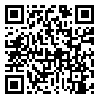Volume 4, Issue 3 (Autumn 2018)
J Health Res Commun 2018, 4(3): 1-11 |
Back to browse issues page
Download citation:
BibTeX | RIS | EndNote | Medlars | ProCite | Reference Manager | RefWorks
Send citation to:



BibTeX | RIS | EndNote | Medlars | ProCite | Reference Manager | RefWorks
Send citation to:
Nezhadhossein M R, Barati L S, Faraj S, Lolo S, Parvin S, Nejad Rasouli M A. Health Literacy of Rural and Urban Communities in Behbahan, Iran. J Health Res Commun 2018; 4 (3) :1-11
URL: http://jhc.mazums.ac.ir/article-1-267-en.html
URL: http://jhc.mazums.ac.ir/article-1-267-en.html
Mohammad Reza Nezhadhossein * 

 , Leila Sadat Barati
, Leila Sadat Barati 

 , Shokat Faraj
, Shokat Faraj 

 , Sadegh Lolo
, Sadegh Lolo 

 , Somayeh Parvin
, Somayeh Parvin 

 , Mohammad Ali Nejad Rasouli
, Mohammad Ali Nejad Rasouli 




 , Leila Sadat Barati
, Leila Sadat Barati 

 , Shokat Faraj
, Shokat Faraj 

 , Sadegh Lolo
, Sadegh Lolo 

 , Somayeh Parvin
, Somayeh Parvin 

 , Mohammad Ali Nejad Rasouli
, Mohammad Ali Nejad Rasouli 


Behbahan Faculty of Medical Sciences, Behbahan, Iran
Abstract: (5707 Views)
Introduction and purpose: Health literacy refers to the capacity to obtain, process, and understand basic health information and services needed to make appropriate health decisions. This concept is an important element of a person’s ability to engage in health promotion activities. Regarding this, the present study was conducted to evaluate health literacy among the urban and rural communities of Behbahan County in Iran. Methods: This study descriptive analytical study was performed on 794 literate individuals aged 17 years or higher. The study population was selected using cluster sampling method. The data were collected using the Iranian Health Literacy Questionnaire. Results: The mean age of the subjects was 40.2±14.21% years. About 53% of the subjects were male. In terms of education level, 32.5% and 18.6% of the participants had diploma and bachelor’s degrees, respectively. Furthermore, the mean health literacy of urban and rural communities was obtained as 70.22%. The results revealed no significant differences between the urban and rural communities in terms of health literacy (P>0.05). Conclusion: The findings indicated that overall health literacy was at a desirable level in Behbahan County. However, given a lower health literacy in women, village residents, and elderly and middle-aged groups, health providers should adopt more effective methods for the transmission of information to these people.
Type of Study: Research(Original) |
Subject:
Health Education and Promotion
Send email to the article author
| Rights and permissions | |
 |
This work is licensed under a Creative Commons Attribution-NonCommercial 4.0 International License. |




